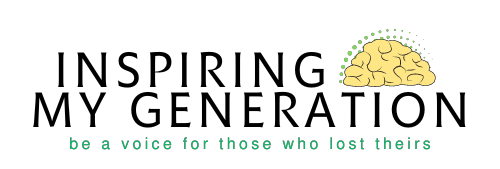How I Learned to Stop Letting Anxiety Take Over My Life
What I Learned About Thinking Traps In This Week’s Episode on Anxiety.
Anxiety is a liar.
It whispers that you’re not good enough, that you’ll fail, that you’re alone in this. And for the longest time, I believed it.
I still remember one of the first times anxiety took over. In fourth grade, my best friend Sam and I were rehearsing after school for the talent show. We had picked Bop to the Top as our song, and she wanted to start practice at 2:35 pm. But if my homework was not finished by 3:00 pm, I would panic. That day, I completely broke down. I couldn’t focus. I couldn’t rehearse. My chest felt tight, my hands were shaking, and all I could think about was how everything would fall apart if I didn’t get my homework done in time.
Looking back, that wasn’t just stress. That was a thinking trap. And those traps shaped so much of my life.
On this week’s episode of Normalize the Conversation, I sat down with Dr. Terri Bacow, a clinical psychologist and expert in Cognitive Behavioral Therapy (CBT), to talk about how our thoughts fuel our anxiety. She explained that anxious feelings almost always start with a thought, an interpretation of what’s happening around us. The problem is that those interpretations aren’t always rational. Often, they spiral into catastrophic stories that feel real but are not true.
Dr. Bacow shared some of the most common thinking traps we fall into:
Catastrophizing: Imagining the worst-case scenario and believing it’s inevitable. “If I fail this test, my entire future is ruined.”
Emotional reasoning: Assuming that just because you feel something, it must be true. “I feel like life will never get better, so it won’t.”
These traps don’t just live in our heads. They take over our bodies, too. For me, anxiety showed up everywhere. I remember lying under my bed in tears, convinced I couldn’t catch my breath. I remember being picked up from school and rushed to the hospital because my heart was racing so fast, I thought something was seriously wrong. I remember breaking down before exams, shaking and sleepless nights, because I believed failing one test meant my world was ending (I never failed a test and maintained honors throughout undergrad and two graduate programs — my brain was catastrophizing).
Even now, in my late twenties, those traps still creep in. The fear of “failing at life” after graduation. The quiet thought that maybe things will never get better than they are right now. At the time, those thoughts seemed so convincing.
As Dr. Bacow reminded me, thoughts and feelings are not facts. Just because a thought shows up in your head does not mean it’s true or that it has power over you. Once we learn to challenge those thoughts, we can stop letting them dictate our choices, relationships, and lives.
Key Takeaways from Dr. Terri Bacow
If anxiety has ever felt like it’s running your life, here are three practical strategies Dr. Terri shared:
Catch the thinking trap. When you notice an “all or nothing” thought like “I’ll never succeed” or “This will never get better,” pause and challenge it. Ask yourself: What is the evidence for and against this thought?
Ground your body to calm your mind. Try the 5-4-3-2-1 method. Name five things you see, four you feel, three you hear, two you smell, and one you taste. It pulls you back into the present moment.
Let anxiety exist without letting it lead. Instead of fighting it, try acknowledging it. “I’m feeling anxious right now, and that’s okay. I can still choose what I do next.”
The truth is that anxiety is not a reflection of your worth or your potential. It is a collection of thoughts, and thoughts can be challenged, reframed, and changed.
So, the next time your mind tells you a story about the worst-case scenario, pause. Ask yourself: Is this a fact, or is this a thinking trap?
Because you are stronger than your thoughts. And you deserve a life that is not ruled by them.
Reminders
Your anxiety does not define you.
You are not broken, you are human.
The thoughts in your head are not always the truth.
You are stronger than the fear you feel.
Every breath is a reset button.
Progress is not the absence of anxiety; it is the courage to keep going while it’s there.
You are not alone. Ever.
Listen to From Worry to Anxiety: How to Recognize Thinking Traps & Reframe Your Mindset with Dr. Terri Bacow now on Normalize The Conversation—available on all streaming platforms.
